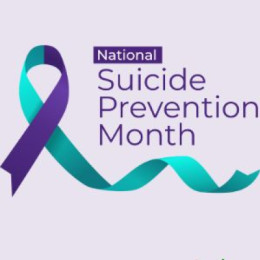Posted On: May 25, 2022 by Community HealthCare System in: News Provider story
By Dr. Nancy Zidek
A recent study about Sudden Infant Death Syndrome, or SIDS, has made news headlines. The study was published in the journal eBioMedicine and stated that the biochemical marker for the cause for SIDS was discovered. This is exciting news, but the big headline is not completely accurate. The study was based in Australia. The group analyzed blood samples taken at birth from 600 newborns. The researchers then found that babies who died from SIDS had a lower level of the biochemical marker BChE (butylcholinesterase).
BChE acts in the autonomic nervous system. This system helps control bodily functions such as blood pressure regulation, respiratory rate, and respiratory drive. The study suggests that if BChE levels are low at birth, it could indicate higher risk of SIDS in the upcoming months.
The study had some problems. It was a very small study, with only 67 cases of SIDS and 10 control subjects (age and and sex matched surviving infants). They found lower levels of BChE in the 67 infants who died, but they also found lower levels in surviving infants. There was not a clear difference between the level of BChE in the the two groups (5.6 units per milligram in the SIDS group versus 7.7 units per milligram in the healthy group).
The bottom line is that this is exciting information, but it is not ready to be put into clinical practice yet. The new research findings will prompt further studies.
What parents can do at this time is continue to follow the current guidelines for minimizing the risk of SIDS:
- Babies should be placed on their backs to sleep. They should only be placed on their stomachs for “tummy time” when an adult is available for constant supervision.
- Babies should sleep on a firm mattress without soft bedding, pillows, toys, or blankets. Do not overdress the baby. One layer of clothing more than the parents feel comfortable in is a good rule to follow.
- Pacifiers may help prevent SIDS. They should be used alone without being attached to strings or toys or clipped to baby’s clothing. Wait to give a breastfed baby a pacifier until breastfeeding is well established.
- Don’t smoke! Maternal smoking during pregnancy increases the risk of SIDS. Infant exposure to second-hand smoke also increases the risk of SIDS. This includes exposure to smoke on clothing, in the house, and in the car.
If parents have further questions, CHCS providers are happy to talk with them. Please make an appointment or send a message through our Patient Portal.











0 comments